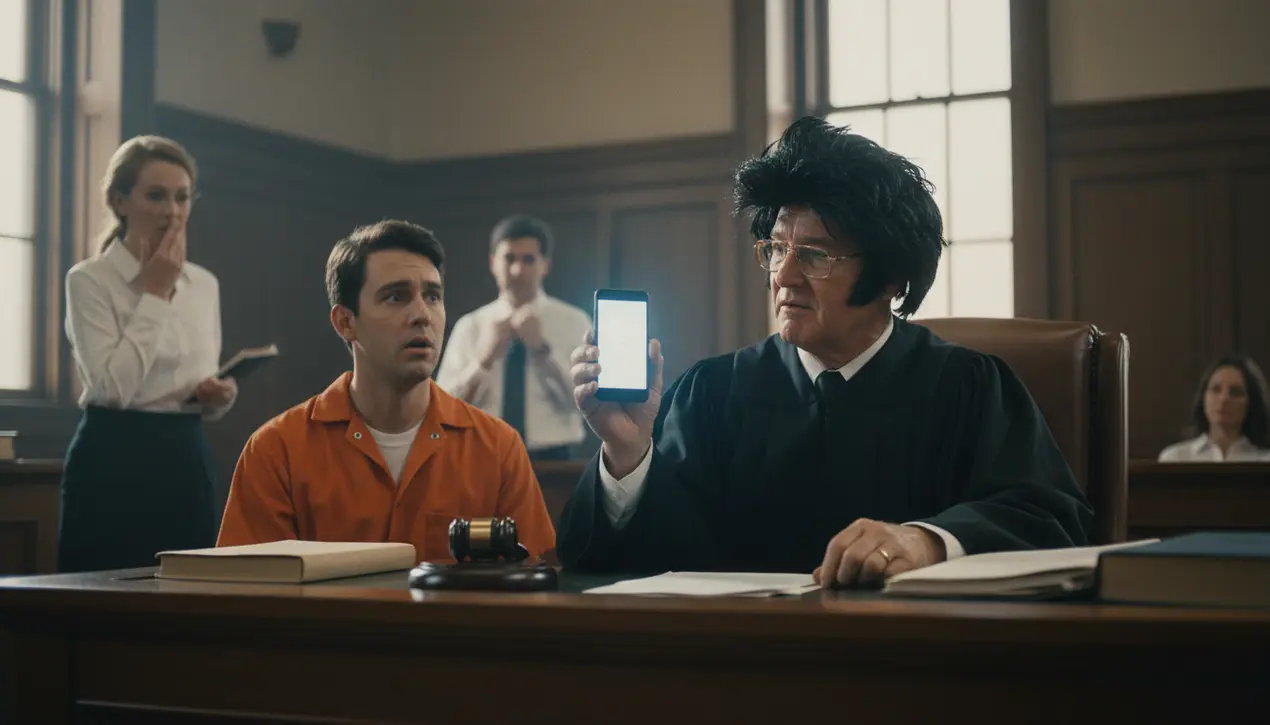
Otherlaw & courtsJudiciary Appointments
US Judge Resigns After Wearing Elvis Wig in Court.
AN
Andrew Blake
1 day ago7 min read5 comments
In a move that feels ripped from a Coen brothers script, the staid world of the American judiciary was recently upended by the peculiar case of Judge Thornhill, who has resigned after a series of bizarre incidents where he presided over his courtroom while wearing an Elvis Presley wig. This wasn't a one-off gag; reports confirm he would routinely play the King's greatest hits from his personal phone during proceedings, peppering his legal pronouncements with what appellate court documents dryly termed 'irrelevant' references to the rock and roll icon.This story is more than just a quirky footnote; it's a fascinating case study in the tension between judicial decorum and individual eccentricity, a deep dive into what happens when the solemn theater of the law collides with a personal obsession. To understand the gravity, one must first appreciate the sacrosanct nature of a courtroom.It is a stage set for impartiality, where every ritual, from the bailiff's opening call to the judge's black robe, is designed to strip away personal bias and reinforce the blindfolded ideal of Lady Justice. The robe itself is a powerful symbol of this anonymity, a deliberate erasure of the individual in service of the institution.By replacing it with a flamboyant piece of pop culture memorabilia, Judge Thornhill didn't just break a dress code; he fundamentally compromised the perceived neutrality of his bench. Imagine being a defendant, your liberty on the line, while the arbiter of your fate adjusts a synthetic pompadour and quotes 'Jailhouse Rock.' The psychological impact is profound, undermining the very legitimacy of the process. This incident invites a comparison to other notable judicial eccentrics, like the late Judge Larry Seidlin, whose tearful, melodramatic pronouncements during the Anna Nicole Smith case became a media spectacle.However, Seidlin's behavior, while unorthodox, remained within the emotional spectrum of his courtroom's drama. Thornhill's actions were a non sequitur, an injection of an entirely unrelated cultural phenomenon that served no procedural purpose.Was it a misguided attempt to ease tension? A symptom of burnout? Or perhaps a deeper, more concerning disconnect from the gravitas of his role? Legal ethicists are now buzzing, debating whether this constitutes a simple breach of conduct or something closer to a failure of judicial temperament, a core requirement for any sitting judge. The consequences extend far beyond the embarrassment of a resignation.Any case over which Judge Thornhill presided while in full Elvis mode is now potentially vulnerable to appeal. Defense attorneys are likely scouring transcripts for any mention of 'hound dogs' or 'suspicious minds,' arguing that their clients were denied a sober and focused adjudicator.The administrative fallout for the court district is significant, involving potential retrials and a massive hit to public confidence. It raises a poignant question about the individuals we empower to wield gavels: where is the line between harmless personality and damaging impropriety? In an era where public trust in institutions is already frayed, a judge channelling a 1950s music legend from the bench feels less like a hilarious anomaly and more like a worrying crack in the foundation. It’s a reminder that the law, for all its statues and precedents, is ultimately administered by human beings, with all their glorious and, in this case, career-ending, idiosyncrasies.
#judicial misconduct
#resignation
#disciplinary action
#Elvis Presley
#featured
Stay Informed. Act Smarter.
Get weekly highlights, major headlines, and expert insights — then put your knowledge to work in our live prediction markets.
Comments
Loading comments...
© 2025 Outpoll Service LTD. All rights reserved.